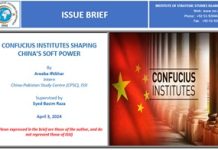A few years ago, America’s decline became a topic of an intense debate among scholars of international relations. Fareed Zakaria challenged the assumption that the power of the United States was fading away. As evidence, he pointed to primary roots of America’s attraction and appeal. He said, “The future is being invented here”. It is the same fact that Joseph S. Nye based his prophecy on; America will continue to lead in international affairs by having information edge. Facebook was created by Mark Zuckerberg, when he was just a college student at Harvard in 2004. That’s only 12 years ago. His idea grew so fast, that last September it reached a milestone by having 1 billion users login to it in a single day. This is equivalent to 1 in 7 humans alive on earth logging in andusing this man’s idea in one day. This is an example of the incredible power of the knowledge economy. The knowledge economy is largely centered in computer software and the activities that surround it. It enables a person like Mark Zuckerburg, with a great idea, to implement and launch it to a huge audience without the huge factories and assets that would’ve been required in the traditional economy of a few years ago.
This is just one example of why Fareed Zakaria made this point: America derives this attraction and appeal due to leadership in technological and educational arenas. These enable a thriving knowledge-economy. Today, the most powerful tool of USA’s appeal and attraction is its knowledge-economy which is changing the way all of us live. Power shifted to the US because of its strong democracy and capital market, and the strong knowledge economy that thrived from these has helped the US cement its power.















